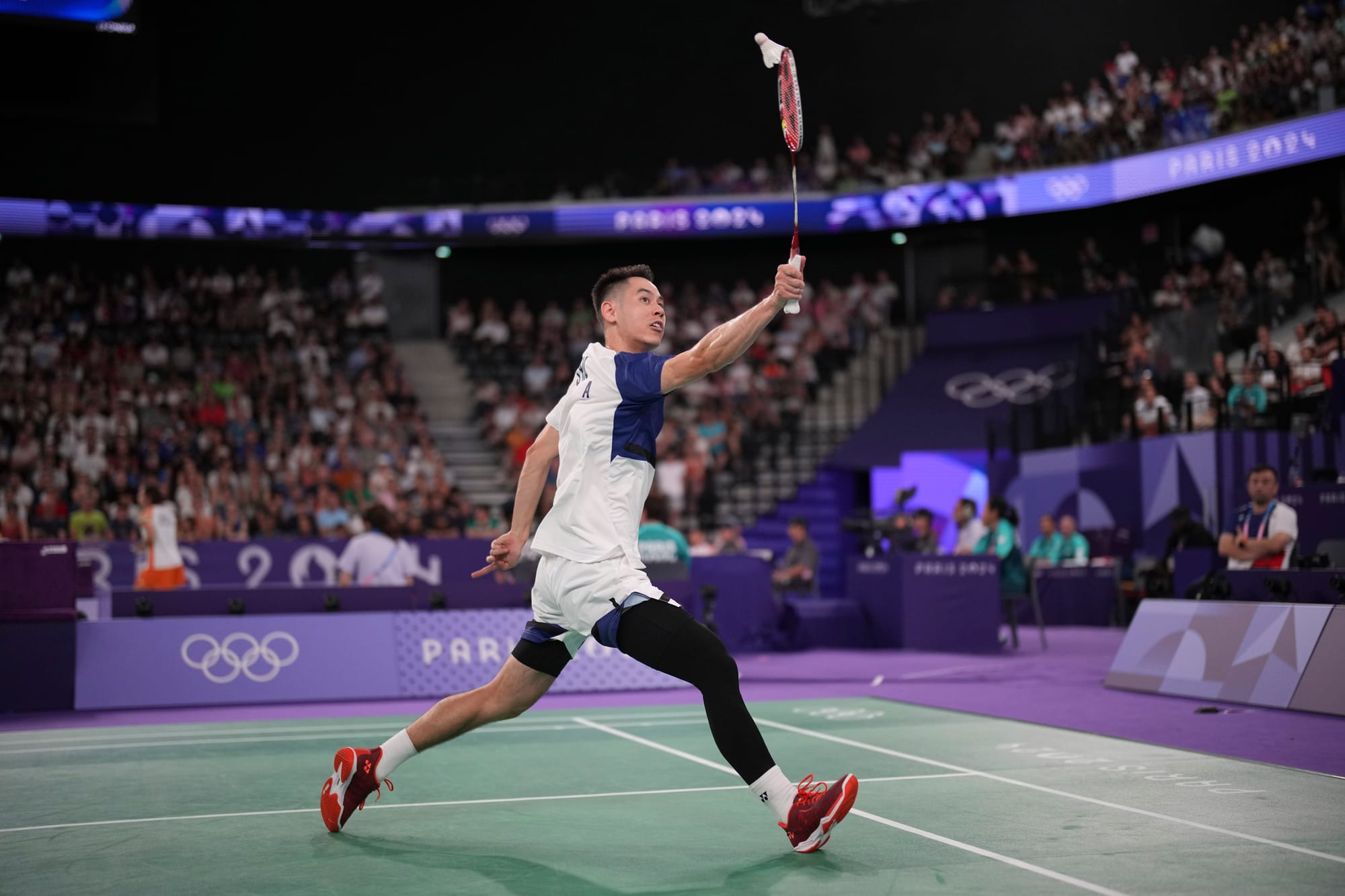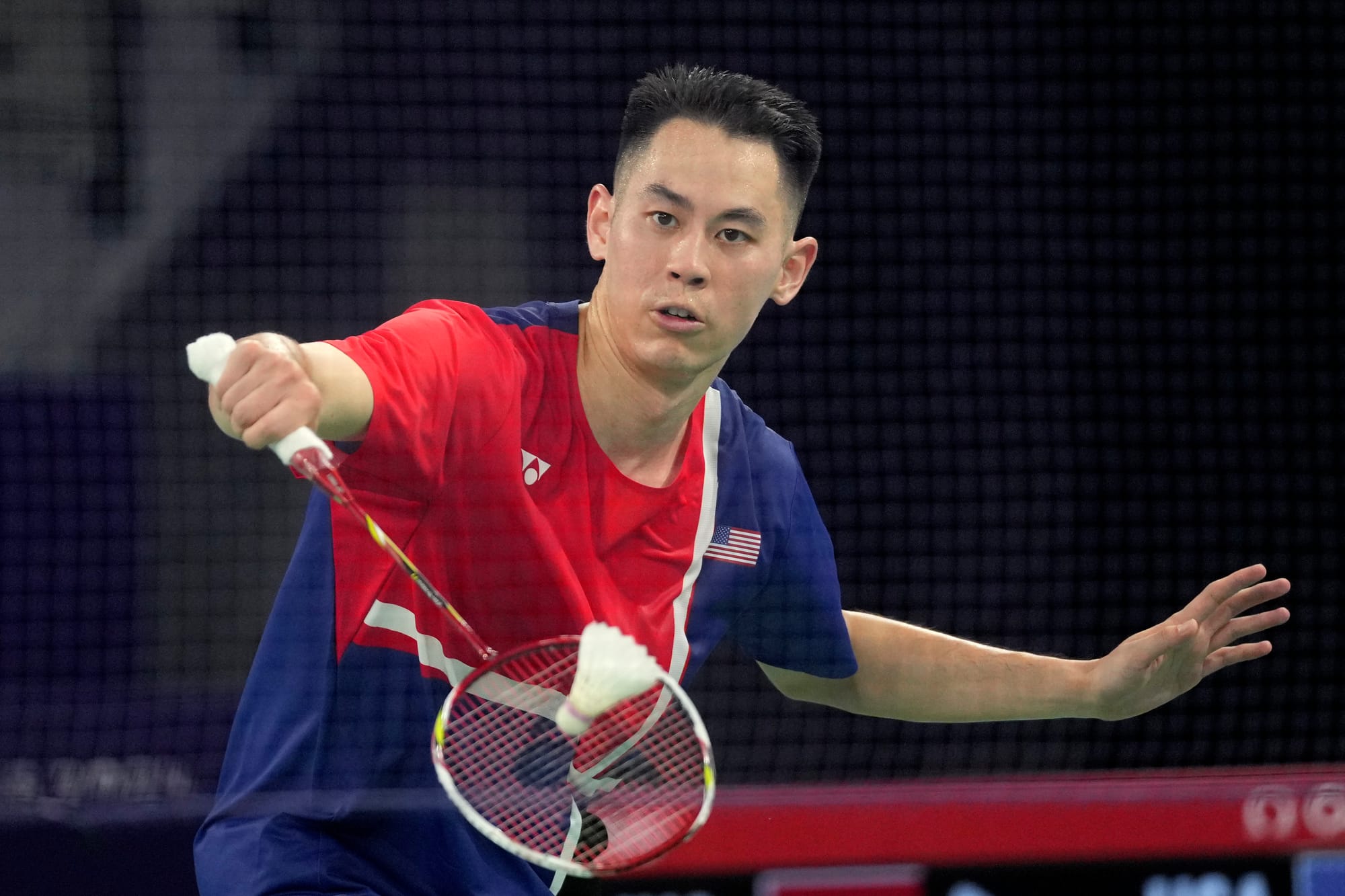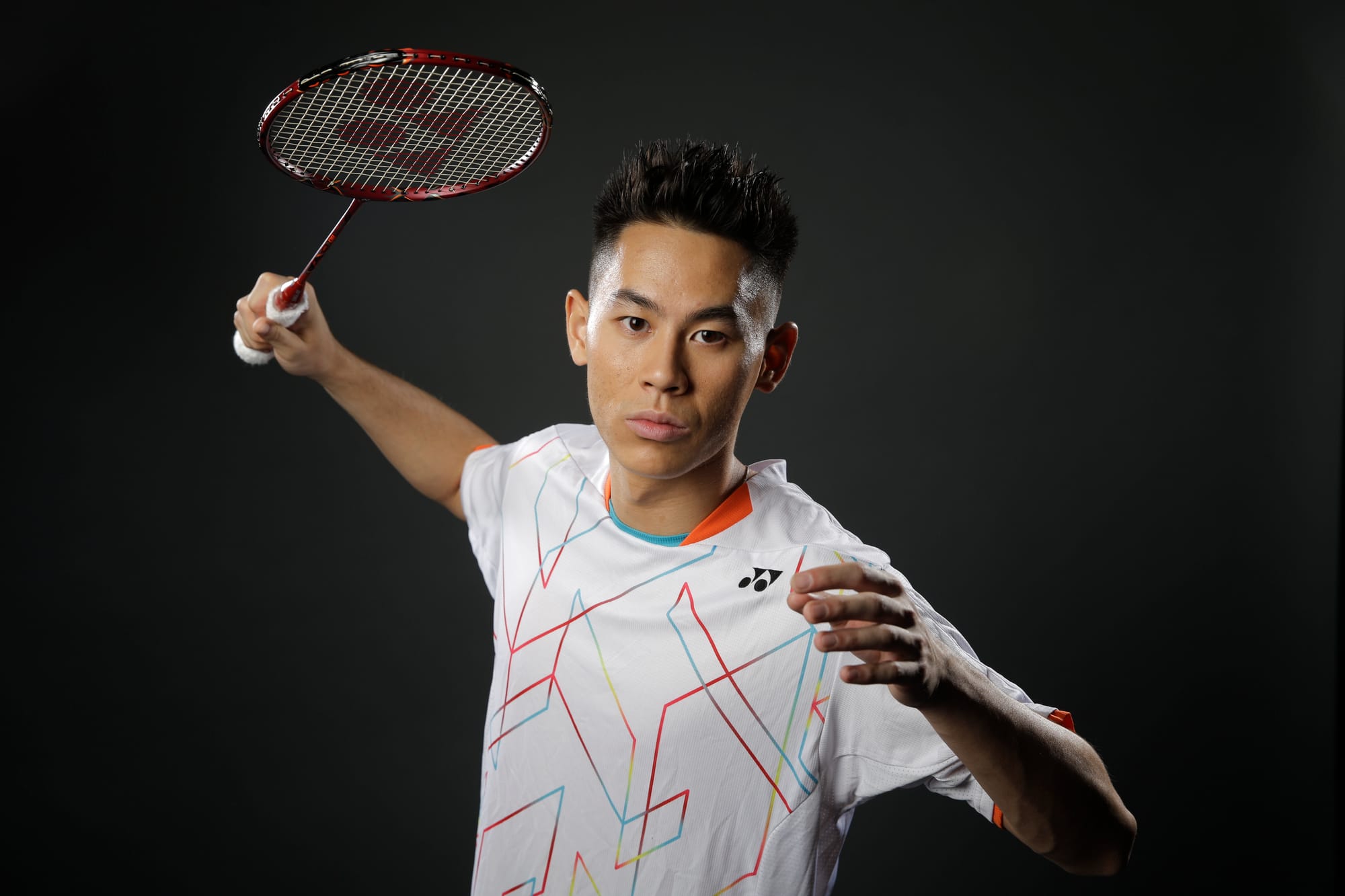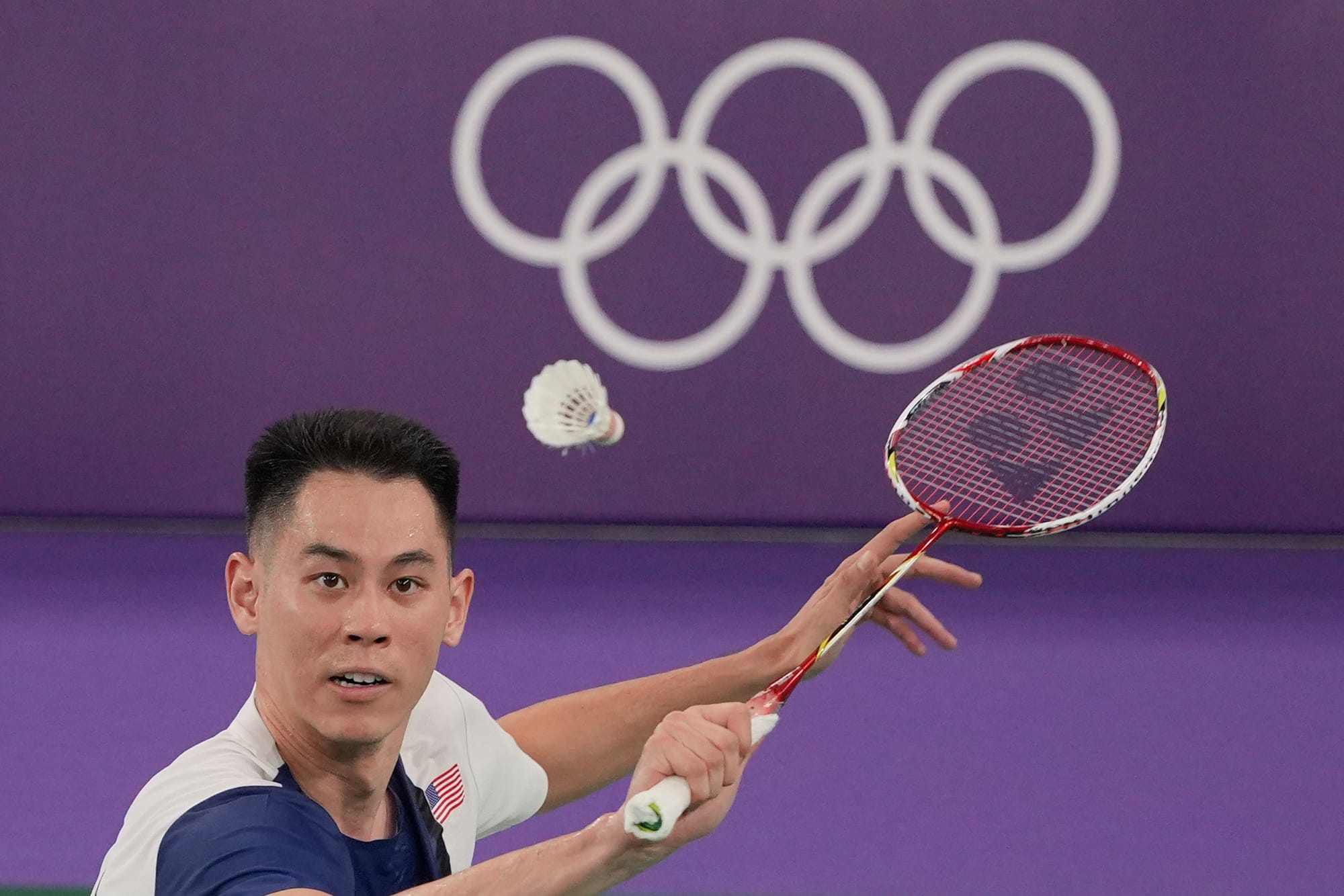Forget, for a moment, everything you thought you knew about badminton. Forget about its social status in America – the overarching perception of it as a genteel pastime of the leisure class, contested in backyards and gardens, and largely devoid of competitive fire. Because this is not the same brand of badminton that Howard Shu grew up playing. This is not the badminton that’s contested indoors at the elite and Olympic level, where the speed of a shuttlecock easily exceeds 300 mph, the fastest of any moving object in all sports.
And this is certainly not the same brand of badminton Shu played when he crossed the Pacific Ocean to train in Asia to train for the 2016 Olympics. In much of Asia, badminton is a serious sport that attracts thousands of talented young athletes willing to push their bodies to the limit. That’s what Shu learned while undergoing a grueling stretch of conditioning sessions and when he encountered a coach who utilized an intimidating motivational tool.
“It was crazy,” Shu says. “I’m running around the track and there’s this guy with a bamboo stick, and if you don’t make your times…”
While Shu always managed to outrun the stick, he witnessed what happened when others didn’t. Whack! A corrective lashing on the backside or the leg. Lesson learned. Run faster. Train harder.

“I don’t know if that type of thing would fly nowadays,” Shu says. “The sheer volume of physical training was just insane. It’s very tough and rigorous to go through, but I think it works. Even now, I don’t run anymore, but I can do a six-and-a-half minute mile on the treadmill and jump rope quite easily, just because we did so much of it back then.”
So yeah. Forget everything you think you knew about badminton. Because Howard Shu’s story, spanning the course of childhood, college, and two Olympic appearances – even as he simultaneously carved a career in finance and consulting – is not about that genteel game at all. It’s about a fiercely competitive sport that takes a toll on the body and mind. It’s about a sport that the 33-year-old Shu, as he transitions from athlete to badminton ambassador, hopes will someday produce the same kind of elite athletes in America that it does in Asia – even without the benefit of those draconian training methods.
While no American has ever medaled in Olympic badminton, a duo of Paralympians won silver in Paris, and Shu hopes it’s only a matter of time before the sport begins to alter its perception in the West.
“I think my one wish is to continue to bring awareness to badminton,” Shu says. “Because it’s such an amazing sport, and it’s given me so many different opportunities.”
Shu’s story begins with his parents, who emigrated to Southern California from Taiwan, one of those countries where badminton is far more than just a backyard pastime. In fact, it's one of the nation’s most popular sports. Shu’s father played competitive badminton, and his mother dreamed of being a track and field athlete, but Shu’s parents were focused on earning enough money to raise a family. They moved to America, had Shu and his older brother, and “wanted to give both of us the opportunities that they never had,” Shu says.
That meant encouraging them to take on extracurricular activities. For Shu, it meant playing pretty much every sport he could. He collected sneakers, idolized Michael Jordan, and dreamed of being a professional athlete, even if he didn’t see many Asian faces like his playing the sports he watched on television. “You naturally just don’t know if it’s possible,” he says. “You don’t know how you’re going to get there. You don’t know what it takes.”

Eventually, at age 8, Shu accompanied his father to a badminton club in Orange County and took to it immediately. Badminton, even at the club level, was dynamic and fast; it rewarded individual effort to the point where Shu could see himself quickly improving.
Shu entered a competition when he was around 10 years old. He was still so new to the sport that he didn’t realize he’d signed up for the United States Junior Nationals, the most prestigious tournament for kids his age. “We go in and I get my butt kicked by the number one kid my age at the time,” Shu says. “And my mom and I were like, ‘Wow, this kid’s so good.’”
So Shu’s mother went up and asked the kid’s mother if they wanted to play doubles together.
“No,” the mother said. “Your son sucks.”
I’ve got to beat this guy, Shu thought to himself.
And a couple of years later, he did. He beat that guy and everyone else he played. He became the national champion in his age group.
“That’s when I started to say no to the other sports,” he says, “and really focus on badminton.”
Shu graduated as the valedictorian of his high school. He had a decision to make: Did he go to college or pursue badminton?
“I was just really aware as a young athlete that badminton isn't going to pay the bills,” Shu says. “It's not a lucrative sport, and even if it is, your athletic career is going to be very short.”
But choosing to go to college wasn’t an entirely binary choice for Shu. He followed his brother to UCLA, which only had a club badminton team. Still, the location afforded him the flexibility to schedule his classes on two days and then go home to Orange County three days a week and continue to train. During his junior year, Shu made a run at qualifying for the 2012 Olympics while he was still attending school and interning at a hedge fund, but he fell short. After he graduated in 2013, he faced another fork in the road: Did he take on a lucrative management consulting job, or did he spend the next three years training in an attempt to qualify for the 2016 Olympics in Rio?

“I was maybe the number three- or four-ranked player in the U.S., so I was never a sure shot,” he says. “But I said, ‘O.K., I have to go for it.’”
He moved back home, then traveled to Asia to eliminate outside distractions and train full-time with the help of a few corporate and private sponsors. He utilized his management and consulting skills and developed a meticulous plan for qualifying for the Olympics; he studied upcoming tournaments and calculated who was attending, and what a victory over the players in attendance would mean in terms of his qualifying status. His planning and training were obsessive as if that coach with the bamboo stick loomed in his thoughts.
A few months before the 2016 Olympics, Shu won a national event and knew he was on his way to qualifying. Afterward, a familiar face approached to congratulate him. It was the same guy who had beaten him at that tournament when he was a kid and whose mother had shunned Shu in the aftermath.
“In my head, I was like, ‘Wow, this is crazy,’” Shu says. “It was a full circle moment for me. I don’t know if I would have been there if it wasn’t for that experience.”
Shu lost his two group-stage matches in Rio, but the rigor of getting there was worth it. He was an Olympian. He’d made it to the pinnacle of sports. No one could take that away from him.
In the aftermath, he began to leave badminton behind and focus on his career. He landed a job as a consultant at Ernst & Young. He worked 80 hours a week for a year and a half. He got to know the members of his work team and told them about his history; they asked him why he wasn’t playing badminton anymore. They told Shu that Ernst & Young had a relationship with the IOC and suggested he pitch the company for a flexible work arrangement to allow him to work from Tokyo while continuing to train. Shu applied, and the company approved it, even capping his weekly hours to give him more training time.
“I had the passion,” Shu says. “I felt physically capable. I just wasn’t sure because I had taken a year off. I had lost my world ranking.”
Shu started playing in tournaments again. And then COVID hit, and he failed to qualify for the Tokyo Olympics. But he kept on playing tournaments here and there, and as 2022 turned into 2023, he found himself creeping up in the world rankings. He thought, Can I give this one last run?

Things were different now. Shu owned his own place in Orange County. He had a girlfriend (who would soon become his wife). He had a full-time job. He’d already been to the Olympics, so there was less pressure. He relished the experience more; when he traveled to tournaments, he’d go out and see the sights instead of resting in his hotel room. And he wound up qualifying for Paris. Once again, he lost both his matches, “but I played extremely well,” he says.
So ended the competitive phase of Shu’s badminton career. While it’s tempting to imagine making a run at the 2028 Olympics in his hometown of Los Angeles, Shu isn’t sure if his body can take the pounding anymore. But even as he continues to work full-time in consulting, badminton is still an integral part of his life: He’s serving on the athletes’ advisory committee for the 2028 Games and has started up a YouTube channel with over 13,000 subscribers that offers match analysis and advises young badminton players on how to navigate an often-confusing competitive landscape. And he’s hoping that, over time, his efforts can help badminton slowly creep into the mainstream in America.
“It still gets stereotyped, but it’s definitely globalizing,” he says. “The gaps are closing, especially in badminton. You can see it.”
Michael Weinreb’s new Wondery Plus podcast, One Party Town, is available now on all podcast platforms.
